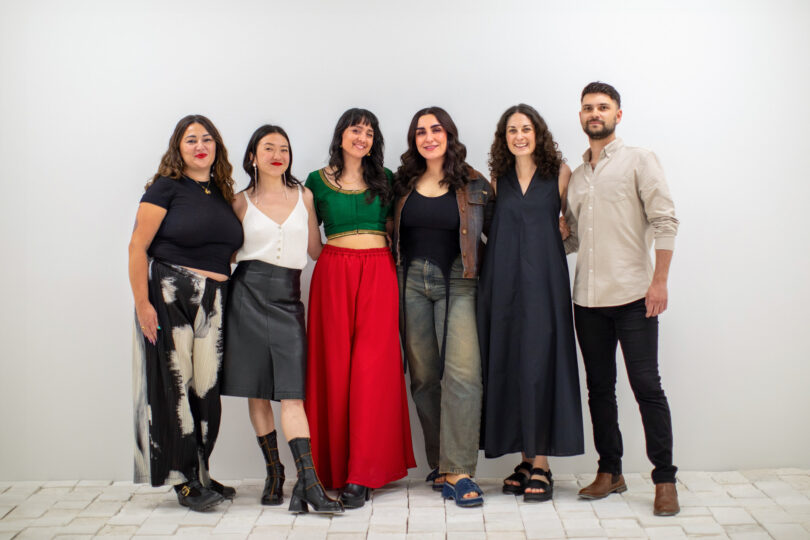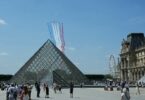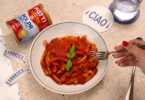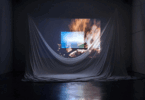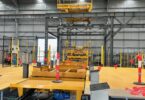| Sarah Ujmaia is a first-generation Chaldean woman and the first member of her family, who migrated from northern Iraq, to be born in Australia. Her experimental, material-led practice examines the wide-reaching impacts of forced displacement and marginalised languages.
And thank you to my baba for laying the timber floor (2024), comprises nearly 4000 pavers of fired and unfired shell grit, a material that is also found in limestone. When compressed under immense heat and pressure over millennia, limestone becomes marble. Ujmaia draws parallels between the slow transformation of these raw materials into valued stone, and the way oral languages evolve across generations.
En masse, the pavers are reminiscent of the town squares – places of communal gathering and cultural exchange – in her parents’ hometown of Ankawa. Traces of chalk, associated with language and learning, transfer onto the visitor as they traverse the pavers, which subtly clink underfoot to evoke the activity of the marketplace. Each paver has been cast by hand, highlighting the individual migrant experience and Ujmaia’s father’s profession as a labourer to provide for his family in Australia.
New wall works reference the Syriac Heritage Museum in Ankawa, whose collection of donated everyday objects has connections to Chaldean culture. They also recall the artist’s family gatherings around the dining table where a bowl of sunflower seeds would always be present. |

